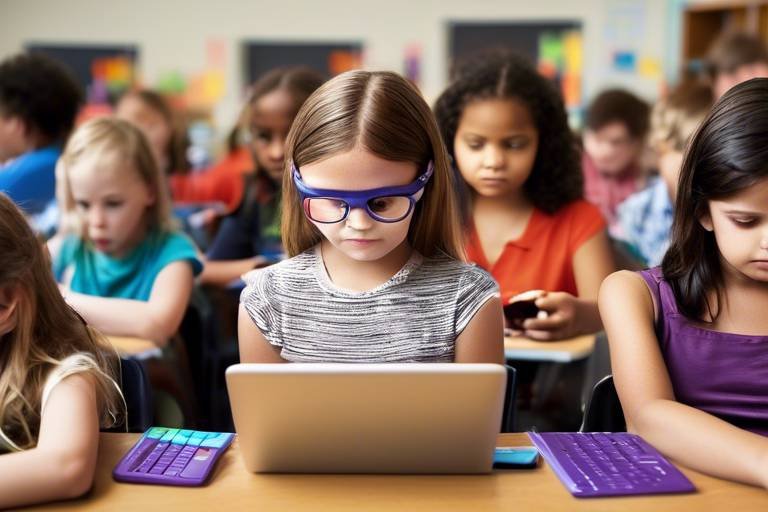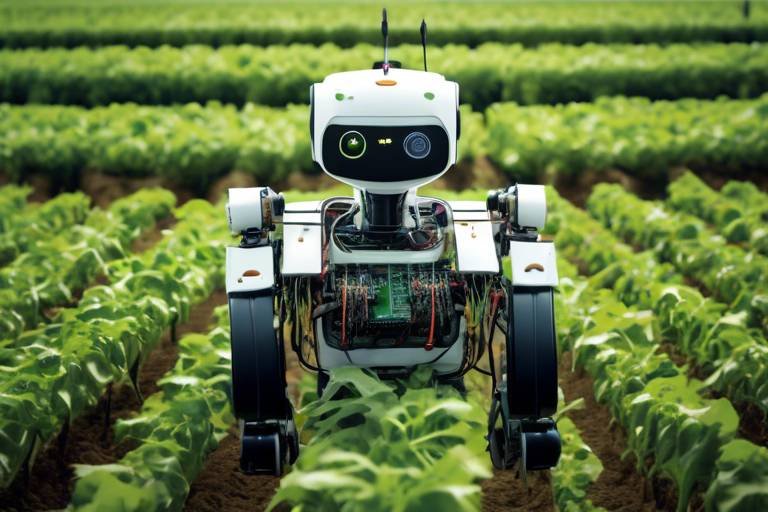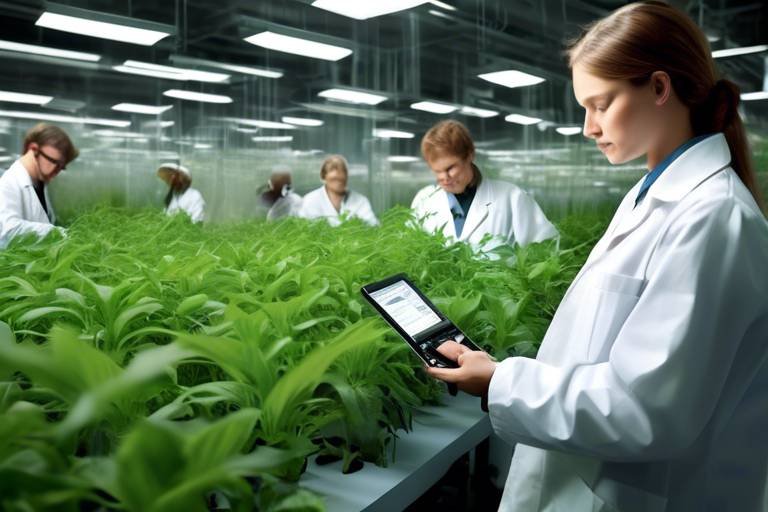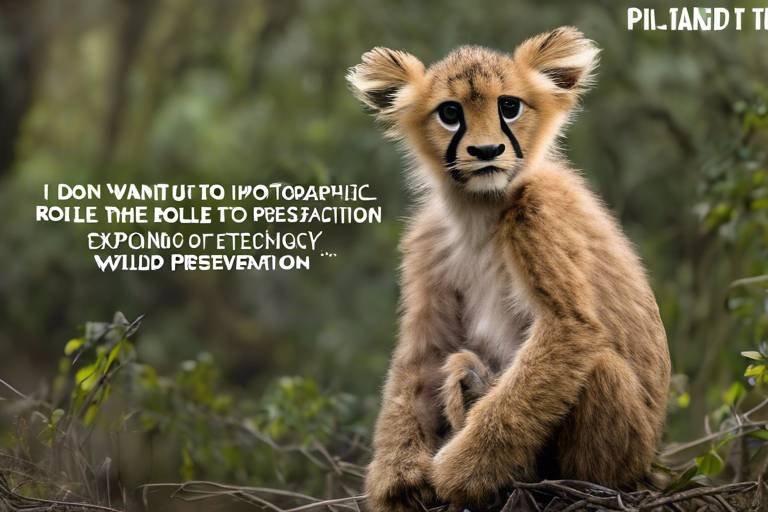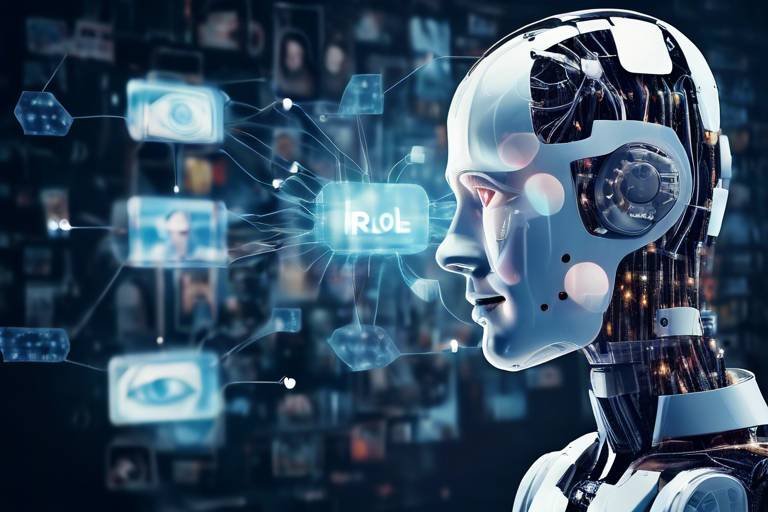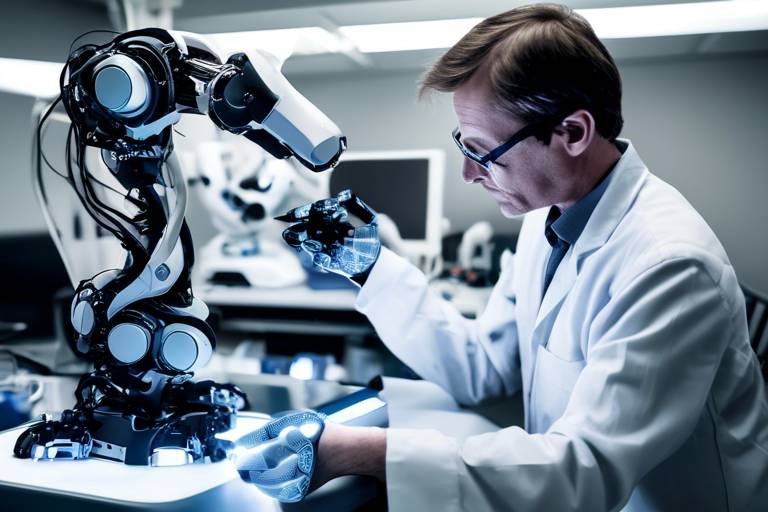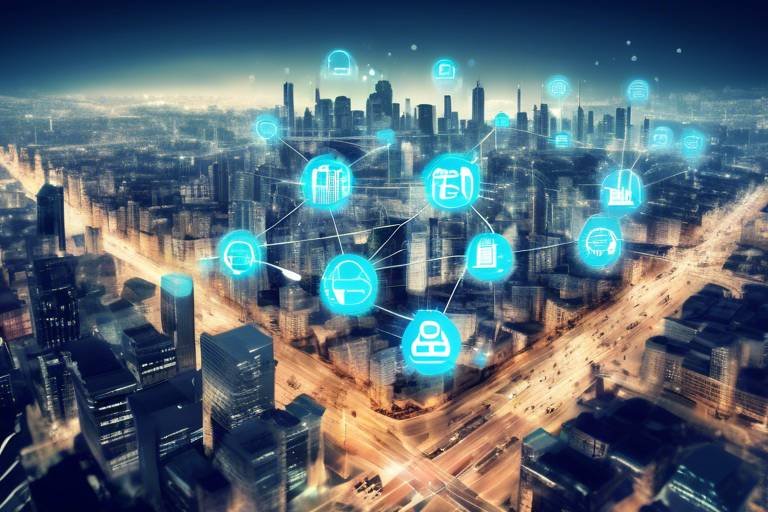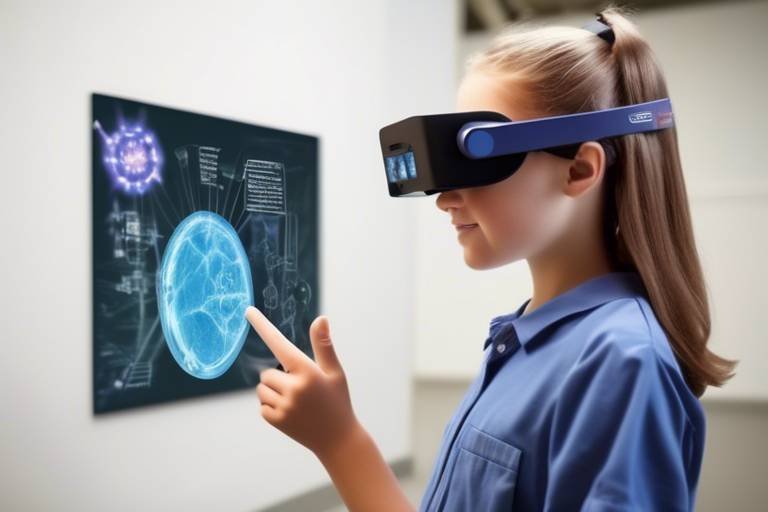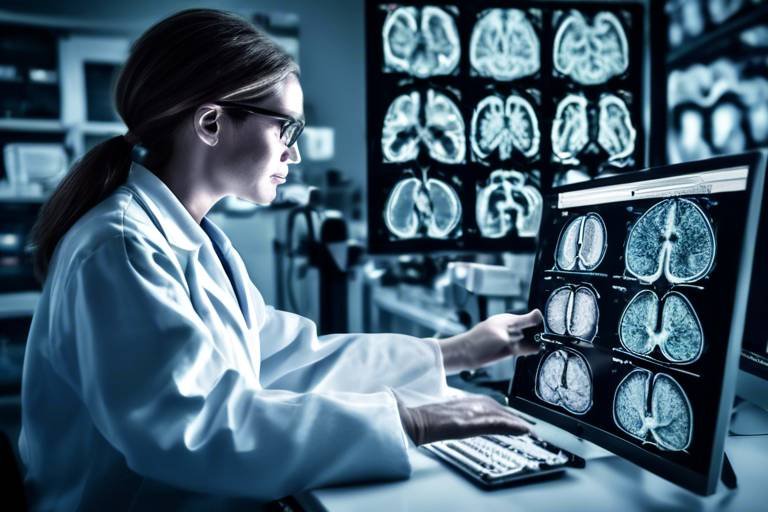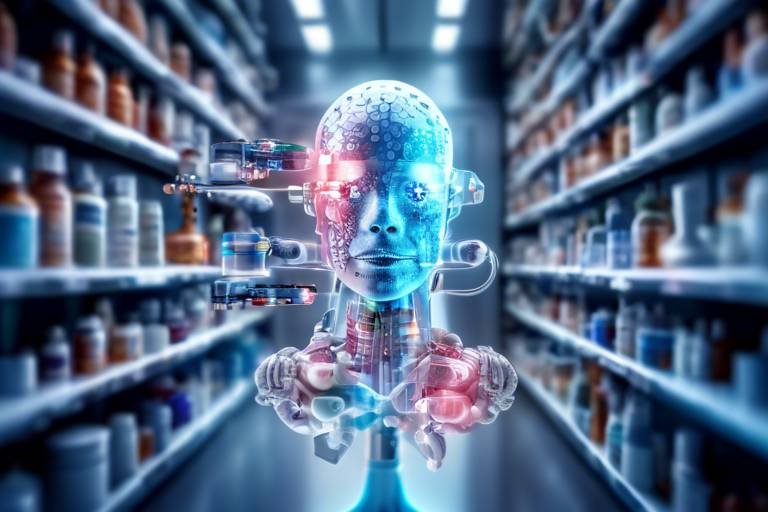The Future of Personalized Learning Technologies
The landscape of education is undergoing a remarkable transformation, and at the heart of this change is personalized learning technology. Imagine a classroom where every student learns at their own pace, with resources tailored to their unique strengths and weaknesses. Sounds like a dream, right? Well, this dream is quickly becoming a reality thanks to advancements in technology. Personalized learning technologies are revolutionizing how students engage with educational content, providing them with experiences that are not just effective but also highly engaging.
As we delve into this fascinating world, we see that personalized learning is not just about customizing content; it’s about creating an environment where students feel empowered to take charge of their own learning journey. With tools that adapt to individual learning styles and preferences, students can explore subjects in a way that resonates with them personally. This approach not only fosters a deeper understanding of the material but also cultivates a love for learning that can last a lifetime.
Moreover, the integration of adaptive learning systems allows for real-time adjustments to learning paths based on student performance. This means that if a student struggles with a particular concept, the system can provide additional resources or modify the learning trajectory to ensure they grasp the material before moving forward. This level of customization is akin to having a personal tutor available 24/7, guiding students through their educational journey.
But what does this mean for educators? It signifies a shift in their role from traditional instructors to facilitators of learning. Teachers can leverage data-driven insights to understand their students better, tailoring their support and interventions to meet each learner's needs. Imagine having access to a treasure trove of data that highlights where each student excels and where they might need a little extra help. This empowers educators to make informed decisions that can significantly enhance student outcomes.
As we look toward the future, the possibilities are boundless. The ongoing advancements in artificial intelligence and data analytics promise to further enrich personalized learning experiences. We can anticipate a world where learning is not only adaptive but also predictive, allowing platforms to foresee challenges students may face and proactively offer solutions. The future of education is bright, and personalized learning technologies are leading the charge.
- What is personalized learning technology?
Personalized learning technology refers to tools and systems designed to tailor educational experiences to meet the individual needs of each student, enhancing engagement and learning outcomes. - How does adaptive learning work?
Adaptive learning utilizes algorithms that analyze student performance to adjust the content and learning paths, ensuring that each learner progresses at their own pace. - What role does data play in personalized learning?
Data provides insights into student strengths and weaknesses, helping educators deliver targeted interventions and support, ultimately improving educational outcomes. - What are the challenges of implementing personalized learning?
Challenges include resistance to change, data privacy concerns, and the need for adequate training for educators to effectively integrate these technologies into their teaching practices.

Emerging Trends in EdTech
The landscape of educational technology is rapidly evolving, driven by a surge in innovative solutions aimed at enhancing personalized learning experiences. With the integration of artificial intelligence, machine learning, and data analytics, educators are now equipped to cater to the diverse needs and learning styles of students. This shift is not just a trend; it’s a revolution that promises to reshape the way we think about education.
One of the most exciting developments in this field is the rise of adaptive learning technologies. These systems leverage sophisticated algorithms to tailor educational content to the individual learner's pace and understanding. Imagine a classroom where each student receives a unique learning path that adjusts in real-time based on their performance. This is not science fiction; it’s happening now!
Moreover, the use of data analytics allows educators to gain valuable insights into student behavior and learning outcomes. By analyzing patterns in data, teachers can identify areas where students struggle and implement targeted interventions. For instance, if a student consistently performs poorly in math, the system can recommend specific resources or activities to help them improve. This level of personalization was unimaginable just a few years ago.
Additionally, the incorporation of virtual and augmented reality is transforming the learning experience. These technologies create immersive environments that engage students in ways traditional methods cannot. For example, students can take virtual field trips to historical sites or conduct science experiments in a safe, simulated environment. This not only enhances engagement but also fosters a deeper understanding of complex concepts.
As we look to the future, the importance of collaborative learning platforms cannot be overlooked. These platforms encourage interaction among students, allowing them to learn from each other while still benefiting from personalized content. Imagine students working together on projects, sharing insights, and helping each other overcome challenges—all while using tools designed to adapt to their individual learning needs.
In conclusion, the emerging trends in educational technology are paving the way for a more inclusive and effective learning environment. By harnessing the power of technology, educators can create tailored experiences that not only engage students but also empower them to take charge of their own learning journeys.
- What is personalized learning? Personalized learning is an educational approach that tailors learning experiences to meet the individual needs, preferences, and interests of each student.
- How does technology enhance personalized learning? Technology enhances personalized learning by providing tools that adapt to student performance, analyze data, and offer customized resources.
- What are some examples of personalized learning technologies? Examples include adaptive learning platforms, learning management systems, and virtual reality applications.
- What challenges are associated with implementing personalized learning? Challenges include data privacy concerns, resistance to change from educators, and the need for adequate training.

Benefits of Personalized Learning
Personalized learning is like a tailor-made suit; it fits perfectly to the unique shape and style of each student. Imagine walking into a classroom where every lesson feels designed just for you, addressing your specific needs and interests. This approach not only enhances the learning experience but also brings a whole host of benefits that can transform education as we know it.
One of the most significant advantages of personalized learning is the boost in student engagement. When students feel that their learning experiences are relevant and tailored to their interests, they are more likely to participate actively in their education. Think about it: would you rather read a textbook that feels dry and uninspiring, or dive into a project that resonates with your passions? Personalized learning taps into this motivation, making education not just a requirement but a thrilling adventure.
Additionally, personalized learning leads to improved retention of information. When students learn at their own pace and in ways that suit their learning styles, they are more likely to grasp and remember the material. For instance, a student who struggles with traditional lectures might thrive when given the opportunity to explore concepts through interactive simulations or hands-on activities. This adaptability ensures that learning sticks, rather than fading away after the test.
Moreover, personalized learning effectively addresses individual learning gaps. Every student has unique strengths and weaknesses, and personalized approaches can shine a light on these differences. By identifying specific areas where a student may be struggling, educators can provide targeted support and resources. For example, if a student is excelling in math but struggling with reading comprehension, personalized learning allows for tailored interventions that focus on enhancing those reading skills without stifling their mathematical growth.
To illustrate the impact of personalized learning, consider the following table that summarizes key benefits:
| Benefit | Description |
|---|---|
| Increased Engagement | Students are more involved when learning is relevant to their interests. |
| Better Retention | Custom learning paths help students remember and understand material better. |
| Addressing Learning Gaps | Personalized approaches identify and target individual weaknesses. |
In conclusion, the benefits of personalized learning extend beyond just academic performance. They foster a deeper connection between students and their education, creating a more dynamic and fulfilling learning environment. As we continue to embrace these innovative technologies, we're not just improving educational outcomes; we're paving the way for a future where every student can thrive in their own unique way.
- What is personalized learning?
Personalized learning is an educational approach that tailors learning experiences to meet the individual needs, preferences, and interests of each student. - How does personalized learning improve student outcomes?
By addressing individual learning styles and gaps, personalized learning increases engagement and retention, leading to better academic performance. - What technologies are used in personalized learning?
Technologies such as adaptive learning systems, AI-driven platforms, and data analytics tools are commonly used to facilitate personalized learning experiences.

Adaptive Learning Systems
Adaptive learning systems are transforming the educational landscape by offering a tailored approach to learning that meets the unique needs of each student. Imagine walking into a classroom where every student is engaged and learning at their own pace, with content that adapts to their individual strengths and weaknesses. This is the reality that adaptive learning technologies are creating. These systems utilize sophisticated algorithms to analyze student performance in real-time, adjusting the learning path and content based on how well a student is grasping the material. This means that if a student is struggling with a particular concept, the system can provide additional resources, practice questions, or even alternative explanations to help them master the subject.
Moreover, adaptive learning systems can significantly enhance the mastery of subjects. They do this by breaking down complex topics into manageable chunks, allowing students to progress through the material as they demonstrate understanding. For instance, a student who excels in mathematics might quickly move through basic algebra concepts, while another who finds it challenging can spend more time on foundational skills before advancing. This personalized approach not only fosters a deeper understanding of the material but also boosts student confidence as they experience success at their own pace.
One of the most exciting aspects of adaptive learning systems is their ability to provide data-driven insights to educators. By collecting and analyzing data from student interactions, these systems can highlight individual strengths and weaknesses, enabling teachers to implement targeted interventions. For example, if a student consistently struggles with reading comprehension, the system can alert the teacher, who can then provide additional support tailored to that student's needs. This kind of informed decision-making is invaluable in today’s diverse classroom environments, where students come with varying backgrounds and learning styles.
The scalability of adaptive learning solutions is another significant advantage. Schools and educational institutions can implement these technologies across various settings, from large public schools to small private institutions. This means that a larger number of students can benefit from personalized learning experiences without compromising quality. As adaptive learning technologies continue to evolve, we can expect to see even more innovative solutions that cater to the diverse needs of learners everywhere.
In summary, adaptive learning systems are not just a trend; they represent a fundamental shift in how education can be delivered. By leveraging technology to create personalized learning experiences, we can ensure that every student has the opportunity to succeed. With the right tools and support, the future of education looks brighter than ever.
- What are adaptive learning systems?
Adaptive learning systems are educational technologies that adjust content and learning paths based on student performance, providing a customized learning experience.
- How do adaptive learning systems benefit students?
They offer personalized learning experiences, improve engagement, and help students master subjects at their own pace.
- Can adaptive learning systems be integrated into existing curricula?
Yes, these systems can be scaled and integrated into various educational settings, enhancing traditional teaching methods.
- What role does data play in adaptive learning?
Data is crucial for understanding student performance, allowing educators to provide targeted interventions and support.

Data-Driven Insights
In the realm of personalized learning, serve as the backbone of effective educational strategies. By harnessing the power of data analytics, educators can unlock a treasure trove of information about student performance, preferences, and learning behaviors. Imagine having a detailed map that guides you through the complex landscape of each student's educational journey. This is precisely what data-driven insights provide.
Adaptive learning systems collect vast amounts of data from student interactions—everything from quiz scores to time spent on specific topics. By analyzing this data, these systems can reveal patterns that might otherwise go unnoticed. For instance, if a student consistently struggles with a particular concept, the system can flag this issue, prompting educators to intervene with targeted support. This is akin to having a personal coach who knows exactly where you need to improve, helping you to focus your efforts effectively.
Moreover, the insights gained from data analytics can be categorized into several key areas:
- Strengths and Weaknesses: Identifying what students excel at and where they struggle allows for a tailored approach to learning.
- Learning Preferences: Understanding whether a student learns better through visual aids, hands-on activities, or auditory materials can significantly enhance their educational experience.
- Engagement Levels: Monitoring how engaged a student is with the material can help educators adjust their teaching methods to maintain interest and motivation.
Additionally, these insights empower educators to make informed decisions about curriculum design. For example, if data shows that a majority of students are not mastering a particular unit, educators can revisit the content, modify their teaching strategies, or even introduce supplementary resources. This iterative process ensures that the learning experience is continuously evolving and improving.
Furthermore, data-driven insights foster a collaborative environment between educators and students. When students are aware of their performance metrics, they can take ownership of their learning. Imagine a student looking at their progress dashboard, seeing areas for improvement, and setting personal goals. This self-directed learning approach not only boosts motivation but also instills a sense of responsibility for their educational journey.
In summary, the integration of data-driven insights into personalized learning is not just a trend; it's a fundamental shift in how education is approached. By leveraging these insights, educators can create a more responsive and engaging learning environment that meets the unique needs of each student, paving the way for greater academic success.
- What are data-driven insights? Data-driven insights refer to the analysis of data collected from student interactions to inform educational strategies and interventions.
- How do adaptive learning systems use data? Adaptive learning systems analyze student performance data to customize learning paths and provide targeted support based on individual needs.
- Why are data-driven insights important in education? They help educators understand student strengths and weaknesses, enhance engagement, and improve educational outcomes by tailoring learning experiences.

Scalability of Solutions
When we talk about scalability in the context of personalized learning technologies, we’re diving into a realm where education can adapt and grow without compromising quality. Imagine a classroom where every student receives a tailored experience, irrespective of the number of learners present. This is the magic of scalable solutions.
Scalable personalized learning systems can be deployed across various educational settings, from small rural schools to large urban districts. The beauty of these technologies lies in their ability to maintain effectiveness while reaching a broad audience. For instance, a single adaptive learning platform can cater to thousands of students simultaneously, adjusting to their individual needs without requiring a one-on-one teacher for each learner.
One of the key factors that contribute to the scalability of these solutions is the use of cloud-based technologies. By harnessing the power of the cloud, educational institutions can access vast amounts of data and resources without the need for extensive physical infrastructure. This not only reduces costs but also allows for seamless updates and improvements to the learning platform, ensuring that students always have access to the latest educational tools.
Moreover, scalable solutions can be tailored to fit various learning environments. Whether it’s a traditional classroom, a hybrid model, or fully online education, these technologies can be adjusted to meet the specific demands of each setting. For example:
- In-person classrooms: Teachers can use adaptive learning tools to provide personalized assignments based on real-time student performance.
- Hybrid models: Students can engage with interactive content at home while receiving targeted support during in-person sessions.
- Online education: Learners can progress through tailored learning paths at their own pace, receiving instant feedback and resources as needed.
Additionally, the integration of data analytics plays a crucial role in the scalability of personalized learning solutions. By analyzing student interactions and performance data, educators can quickly identify trends and make informed decisions about curriculum adjustments. This proactive approach ensures that as the number of students grows, the quality of education remains high, effectively addressing any learning gaps that may arise.
In conclusion, the scalability of personalized learning technologies is not just about reaching more students; it’s about enhancing the educational experience for everyone involved. As these solutions continue to evolve, we can anticipate a future where personalized learning becomes the norm, breaking down barriers and making quality education accessible to all.
- What is personalized learning? Personalized learning is an educational approach that tailors instruction to meet individual student needs, preferences, and interests.
- How do adaptive learning systems work? Adaptive learning systems utilize algorithms to modify content and learning paths based on real-time student performance, allowing for a customized educational experience.
- What are the benefits of using scalable solutions in education? Scalable solutions allow for the effective delivery of personalized learning experiences to a larger number of students without sacrificing quality or engagement.
- How can educators ensure data privacy with personalized learning technologies? Educators can implement robust security measures and transparent policies to protect sensitive student information while leveraging data for educational benefits.

Role of Artificial Intelligence
This article explores the evolving landscape of personalized learning technologies, examining their potential to revolutionize education through tailored experiences, adaptive learning systems, and innovative tools that cater to individual student needs.
The landscape of educational technology is rapidly changing, with new trends such as artificial intelligence, machine learning, and data analytics driving personalized learning experiences that cater to diverse student needs and learning styles.
Personalized learning offers numerous advantages, including improved student engagement, better retention of information, and the ability to address individual learning gaps, ultimately leading to enhanced educational outcomes and greater student satisfaction.
Adaptive learning systems use algorithms to adjust content and learning paths based on student performance, creating a customized educational experience that helps learners progress at their own pace and enhances mastery of subjects.
By leveraging data from student interactions, adaptive learning systems provide educators with valuable insights into individual strengths and weaknesses, enabling targeted interventions and support tailored to each learner's unique needs.
Adaptive learning technologies can be scaled across various educational settings, making it easier for institutions to implement personalized learning solutions that benefit a larger number of students while maintaining quality and effectiveness.
Artificial intelligence (AI) is transforming the educational landscape by personalizing learning experiences in ways that were previously unimaginable. Imagine having a virtual tutor that knows your strengths and weaknesses better than you do! AI systems analyze vast amounts of data from student interactions, enabling them to understand individual learning patterns and preferences.
One of the most significant advantages of AI in education is its ability to predict learning outcomes. By examining historical data, AI can forecast how well a student might perform on specific tasks or subjects. This predictive capability allows educators to:
- Identify students who may need additional support early on.
- Customize learning materials based on predicted performance.
- Provide timely interventions to help students stay on track.
Furthermore, AI platforms can recommend resources tailored to each learner's unique needs. For instance, if a student struggles with algebra, the system can suggest targeted exercises or video tutorials specifically designed to address those gaps. This level of personalization not only enhances the learning experience but also keeps students engaged and motivated.
Additionally, AI can facilitate real-time feedback, providing students with instant insights into their performance. This immediate response helps learners adjust their study habits and strategies, making the learning process more efficient and effective. In a world where every second counts, having AI as a learning partner can make all the difference.
Despite the potential benefits, implementing personalized learning technologies poses challenges such as resistance to change, data privacy concerns, and the need for educator training to effectively integrate these tools into existing curricula.
Ensuring student data privacy is crucial when implementing personalized learning technologies, requiring robust security measures and transparent policies to protect sensitive information while still leveraging data for educational benefits.
Effective integration of personalized learning technologies necessitates comprehensive training for educators, empowering them with the skills and knowledge to utilize these tools effectively and enhance the learning experience for their students.
The future of personalized learning technologies is promising, with ongoing advancements likely to further enhance educational experiences, making learning more accessible, engaging, and effective for students worldwide.
- What is personalized learning? - Personalized learning is an educational approach that tailors learning experiences to meet the individual needs, preferences, and strengths of each student.
- How does AI contribute to personalized learning? - AI analyzes student data to provide insights, recommend resources, and predict outcomes, thereby creating a more customized learning experience.
- What are the challenges of implementing personalized learning technologies? - Challenges include resistance to change, data privacy concerns, and the need for proper training for educators.
- What are adaptive learning systems? - These systems adjust content and learning paths based on student performance, allowing for a tailored educational experience.

Challenges in Implementation
Implementing personalized learning technologies is not just a walk in the park. While the benefits are enticing, the road to successful integration is often riddled with challenges that educators and institutions must navigate. One of the primary hurdles is resistance to change. Many educators are accustomed to traditional teaching methods and may feel overwhelmed or skeptical about adopting new technologies. This skepticism can stem from a fear of the unknown or concerns about their ability to effectively use these tools in the classroom.
Another significant challenge is data privacy concerns. With the rise of digital learning platforms, the amount of data collected on students has increased exponentially. Parents and educators alike are rightfully worried about how this data is used and stored. Ensuring that robust security measures are in place is crucial. Schools must not only comply with regulations but also foster a culture of transparency regarding data usage. This requires clear communication with parents and students about what data is collected and how it benefits the learning experience.
Moreover, the need for educator training cannot be overstated. For personalized learning technologies to be effective, teachers must be equipped with the right skills and knowledge. This means investing in comprehensive training programs that empower educators to utilize these tools seamlessly. Without proper training, even the most advanced technology can fall flat, leaving students without the tailored experiences they need to thrive.
In summary, while personalized learning technologies hold immense potential for transforming education, the challenges in their implementation must be addressed head-on. Institutions must foster a culture of openness towards change, prioritize data privacy, and invest in ongoing training for educators. By tackling these challenges, we can pave the way for a more effective and personalized learning environment.
- What are the main challenges of implementing personalized learning technologies?
The main challenges include resistance to change, data privacy concerns, and the need for comprehensive educator training. - How can schools address data privacy concerns?
Schools can address these concerns by implementing robust security measures and maintaining transparency about data usage with parents and students. - Why is educator training important for personalized learning?
Educator training is crucial because it equips teachers with the necessary skills to effectively integrate personalized learning technologies into their classrooms.

Addressing Data Privacy Concerns
In an age where data is the new oil, the integration of personalized learning technologies brings forth significant concerns regarding student data privacy. As educational institutions increasingly adopt these technologies, they must tread carefully to ensure that sensitive information remains protected. The challenge lies not only in safeguarding this data but also in maintaining the trust of students and parents alike.
To effectively address these privacy concerns, educational institutions need to implement a multifaceted approach. This includes establishing robust security measures that protect data from unauthorized access, breaches, and misuse. For instance, using encryption protocols and secure servers can significantly reduce the risk of data leaks. Moreover, institutions should adopt transparent policies that clearly outline how data is collected, used, and stored. This transparency is crucial in building confidence among stakeholders.
Another critical aspect is the importance of data minimization. Institutions should only collect data that is essential for enhancing the learning experience. By limiting the amount of personal information gathered, schools can reduce the potential risks associated with data breaches. Additionally, regular audits of data practices can help ensure compliance with privacy regulations and best practices.
Furthermore, involving parents and students in conversations about data privacy can empower them to understand their rights and the measures in place to protect their information. Educational campaigns can help demystify the technology and foster a culture of privacy awareness. As a part of this initiative, schools can provide resources that explain:
- What data is being collected
- How it will be used
- Who has access to it
- What steps are taken to protect it
Ultimately, while the benefits of personalized learning technologies are vast, addressing data privacy concerns is paramount. By prioritizing security, transparency, and education, institutions can create a safe environment where students can thrive without fear of their personal information being compromised.
- What types of data are collected in personalized learning technologies?
Personalized learning technologies typically collect data related to student performance, engagement, and interaction with learning materials. This can include quiz scores, time spent on tasks, and even behavioral data. - How can schools ensure data privacy?
Schools can ensure data privacy by implementing strong security measures, limiting data collection to what is necessary, and maintaining transparent policies regarding data usage. - What should parents do if they have concerns about data privacy?
Parents should engage with their child's school to understand the data policies in place and advocate for transparency and security measures that protect their child's information. - Are there regulations governing student data privacy?
Yes, there are several regulations, such as the Family Educational Rights and Privacy Act (FERPA) in the U.S., which govern how educational institutions handle student data.

Training Educators for Success
In the rapidly evolving world of personalized learning technologies, the role of educators has never been more crucial. To truly harness the potential of these innovative tools, teachers must be equipped with the right skills and knowledge. Think of it this way: just as a chef needs to know how to use the latest kitchen gadgets to create a masterpiece, educators need to be trained to effectively implement and utilize personalized learning technologies in their classrooms.
Effective training programs should focus on several key areas to ensure educators feel confident and competent in using these tools:
- Understanding Technology: Educators must first grasp how personalized learning technologies work. This includes familiarizing themselves with adaptive learning systems, AI-driven platforms, and data analytics tools. Workshops and hands-on training sessions can help demystify these technologies.
- Integration Strategies: It's not enough to know how to use the technology; teachers also need to learn how to integrate these tools into their existing curricula. This means understanding when and how to use personalized learning tools to enhance traditional teaching methods.
- Data Interpretation: Educators should be trained to analyze the data generated by these technologies. By understanding student performance metrics, they can make informed decisions about their teaching strategies and tailor their support to meet individual student needs.
Moreover, ongoing support and professional development are essential. Just as technology evolves, so too should educators' skills. Schools and educational institutions should offer continuous training opportunities, whether through online courses, workshops, or peer collaboration. This approach not only fosters a culture of learning but also helps educators feel supported in their journey to implement personalized learning effectively.
Additionally, creating a community of practice among educators can be incredibly beneficial. When teachers share their experiences, challenges, and successes with personalized learning technologies, they can collectively enhance their skills and strategies. This collaborative environment encourages innovation and allows educators to learn from one another, creating a rich tapestry of shared knowledge that ultimately benefits students.
In conclusion, training educators for success in personalized learning is not just about equipping them with new tools; it's about fostering a mindset of adaptability and continuous growth. By investing in comprehensive training programs and creating supportive communities, we can empower teachers to transform education and provide students with the tailored learning experiences they deserve.
Q1: Why is training educators important for personalized learning?
A1: Training ensures that educators are equipped with the necessary skills to effectively implement personalized learning technologies, ultimately enhancing student engagement and learning outcomes.
Q2: What areas should training programs cover?
A2: Training should focus on understanding technology, integration strategies, and data interpretation to empower educators in their teaching practices.
Q3: How can schools support ongoing educator training?
A3: Schools can offer continuous professional development opportunities, such as workshops, online courses, and peer collaboration, to keep educators updated on the latest technologies and teaching strategies.
Q4: What is a community of practice?
A4: A community of practice is a group of educators who collaborate, share experiences, and support each other in using personalized learning technologies, fostering a culture of continuous improvement.

Future Prospects of Personalized Learning
The future of personalized learning technologies is not just a fleeting trend; it's a transformative movement set to redefine the educational landscape. As we look ahead, several exciting prospects emerge that promise to make learning not only more accessible but also incredibly engaging for students around the globe. Imagine a classroom where each student learns at their own pace, with resources tailored to their unique interests and strengths. This isn't just a dream—it's becoming a reality through advancements in technology.
One of the most promising aspects of personalized learning is the integration of virtual reality (VR) and augmented reality (AR) into educational experiences. These technologies can create immersive learning environments where students can explore complex concepts in a hands-on way. For instance, a history lesson could take students back in time to experience events as if they were actually there, making the learning process not only more memorable but also more impactful.
Moreover, as data analytics continues to evolve, we can expect even more sophisticated algorithms that will refine the way educational content is delivered. These algorithms will be able to analyze a student’s learning patterns in real-time, adjusting the difficulty level of tasks or suggesting new resources to help them overcome challenges. This level of adaptability ensures that no student is left behind, fostering an environment where every learner can thrive.
Another exciting prospect is the potential for global collaboration among students. With personalized learning technologies, classrooms can connect with each other across the globe, allowing students to work on projects together regardless of their geographical location. This not only enriches their learning experience but also prepares them for a world that is increasingly interconnected.
As we explore these advancements, it’s crucial to remember the importance of equity in education. Personalized learning technologies must be accessible to all students, regardless of their background or resources. This means that as we develop these systems, we should prioritize inclusivity and ensure that every learner has the opportunity to benefit from these innovations.
In summary, the future of personalized learning technologies holds immense promise. With the integration of immersive technologies, advanced data analytics, and global collaboration, we are on the brink of an educational revolution. As educators, students, and technology developers work together, we can create learning experiences that are not only more efficient but also more meaningful. The question remains: are we ready to embrace this future and unlock the full potential of personalized learning?
- What is personalized learning?
Personalized learning is an educational approach that tailors learning experiences to meet the individual needs, skills, and interests of each student. - How does technology enhance personalized learning?
Technology, such as adaptive learning systems and AI, allows for real-time adjustments in learning paths, ensuring that each student receives the support they need to succeed. - What are some challenges of implementing personalized learning?
Challenges include data privacy concerns, resistance to change among educators, and the need for comprehensive training to effectively use these technologies. - Will personalized learning be accessible to all students?
It is essential that personalized learning technologies are designed with equity in mind, ensuring accessibility for all students, regardless of their background.
Frequently Asked Questions
- What is personalized learning technology?
Personalized learning technology refers to educational tools and systems that adapt to the individual needs, preferences, and learning styles of students. These technologies aim to create customized learning experiences that enhance engagement and effectiveness.
- How does adaptive learning work?
Adaptive learning utilizes algorithms to analyze a student's performance in real-time. Based on this data, the system adjusts the content and learning paths, allowing students to progress at their own pace and focus on areas where they need improvement.
- What are the benefits of personalized learning?
Personalized learning offers several advantages, including increased student engagement, improved retention of information, and the ability to address individual learning gaps. This tailored approach can lead to better educational outcomes and higher student satisfaction.
- What role does artificial intelligence play in personalized learning?
Artificial intelligence is crucial in personalizing learning experiences. It helps platforms analyze student behavior, predict outcomes, and recommend resources that align with each learner's preferences and objectives, making the learning process more effective.
- What challenges exist in implementing personalized learning technologies?
Challenges include resistance to change from educators and institutions, data privacy concerns regarding student information, and the need for adequate training for teachers to effectively integrate these technologies into the classroom.
- How can data privacy concerns be addressed?
To address data privacy concerns, schools and institutions must implement robust security measures and maintain transparent policies that protect sensitive student information while still utilizing data to enhance educational outcomes.
- Why is training educators important for personalized learning?
Training educators is vital because it equips them with the necessary skills and knowledge to effectively use personalized learning technologies. This training ensures that teachers can maximize the potential of these tools, ultimately enhancing the learning experience for their students.
- What does the future hold for personalized learning technologies?
The future of personalized learning technologies is bright, with ongoing advancements likely to make education more accessible, engaging, and effective. As technology evolves, we can expect even more innovative solutions tailored to meet the diverse needs of students worldwide.

